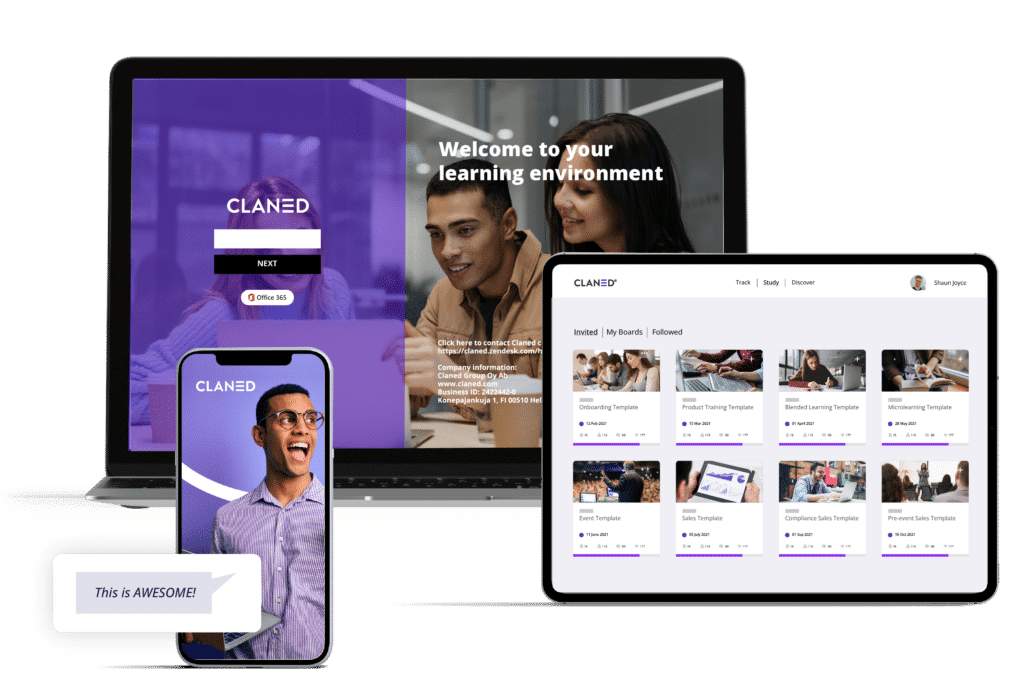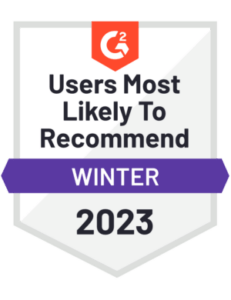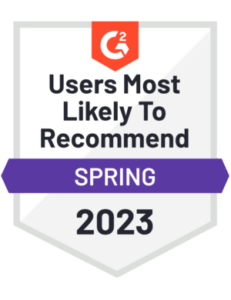What does it say about society if half of the world’s population continues to be excluded from essential systems and privileges?
Around the world, women make up about 43% of the agricultural labor force. In the least developed countries, 2 out of every 3 working women are employed in agriculture. And yet, despite women’s substantial contribution to the agriculture industry, they are routinely ignored or excluded from the agricultural support and services available to men.
There are so many cultural and societal factors at play that lead to this gender gap. But the root cause is always the same: women’s access to decision-making and leadership remains severely limited in many parts of the world. And not much has changed for years.
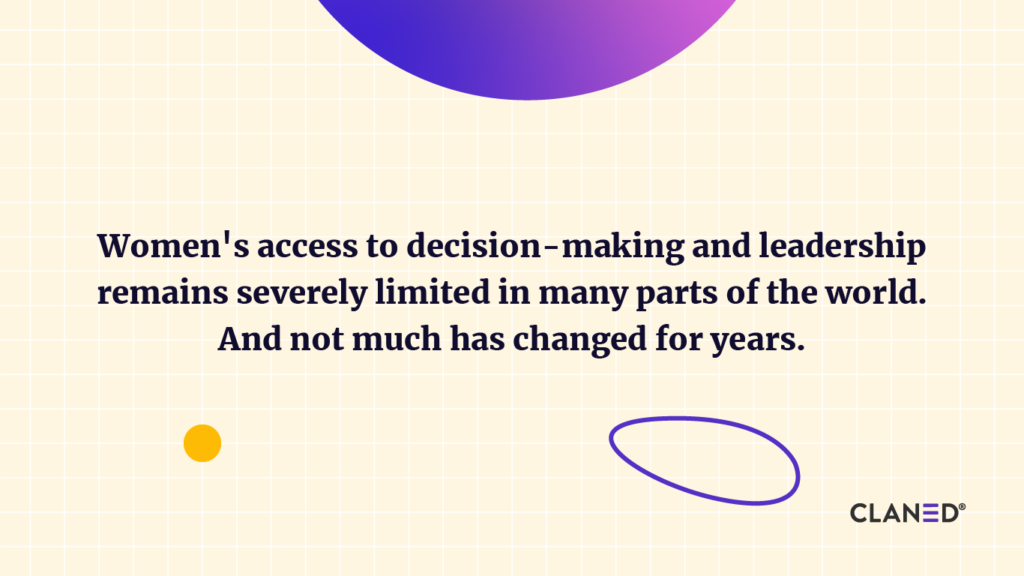
But the Ban Ki-moon Centre for Global Citizens (BKMC) – with a mission centered around equality and empowerment – is doing its part to level the playing field.
Using Claned’s online learning platform, the Centre has developed a leadership training program that aims to not only level the field for women farmers, but also to tackle issues relating to climate change and adaptation.
We sat down with Viola Christian – Program Officer at BKMC – to know more about their online training program, its goals, and the ways in which online learning has redefined their training experience.
The Online Executive Training Program – And Why It Matters
Climate change might just be the most urgent and significant challenge of the modern world, threatening to affect lives and livelihoods around the globe. But its impact is all the more disproportionally experienced by women.
In agriculture, the lack of access to technology, resources, and support typically available to men means that women farmers are far more vulnerable to the effects of climate change. Which is ironic, because women farmers are privy to some of the most climate-resilient and climate-smart agricultural practices around the world that build on historical knowledge and skills passed through generations.
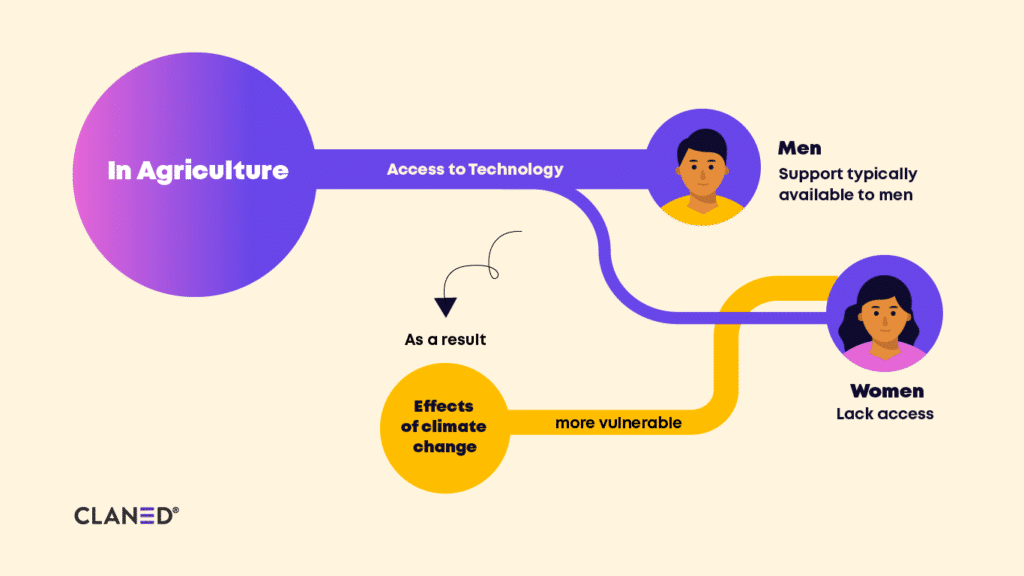
Still, the inequality persists. And the policies already in place do next to nothing to help alleviate this.
“In African countries especially, women make up a large proportion of smallholder farmers and are at the heart of their country’s agricultural productivity. But the policies on agriculture are instead designed to serve big corporations and agricultural industries”, says Viola.
“So it’s clear that when it comes to agricultural adaptation, women and their voices have to be strengthened and amplified to make a difference.”
It is at this interesting juncture where climate change, equality, and empowerment meet that the Online Executive Training (OET) first came to life.
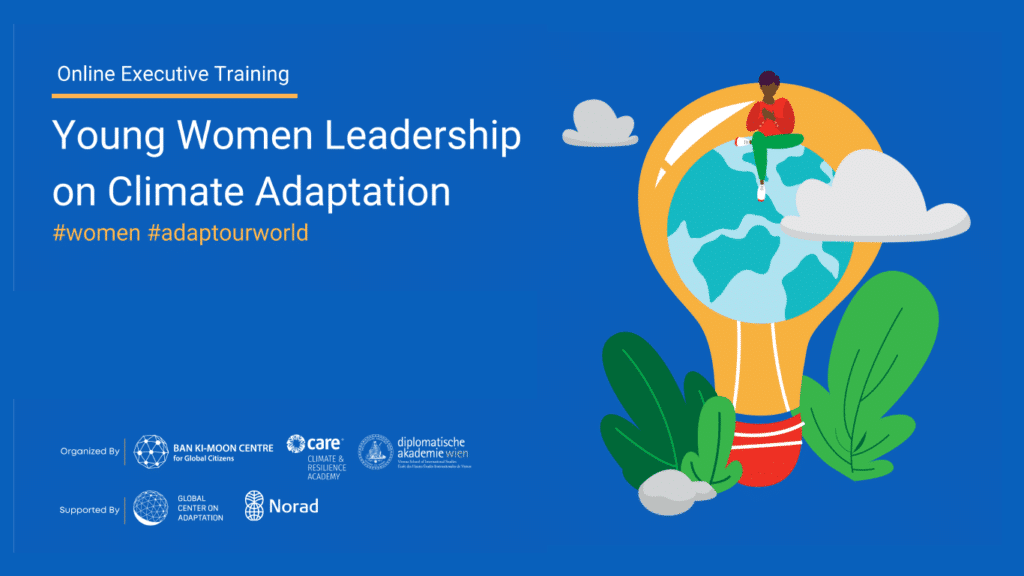
Viola explains: “On the one hand, the online training program will help these young women build knowledge on climate adaptation, particularly gender-based climate adaptation. And on the other hand, it will help them develop leadership skills, particularly in African countries where young women leadership is most urgently needed”.
The program is an extension of the BKMC’s mission to help strengthen the role of women and youth in important negotiations and help them “have a seat at the table” on matters that concern future generations.
And while the Centre has carried out leadership training programs in the past, this one turned out to be just a little bit different, and just a little more special. Especially to us.
Enter Claned: A Leadership Training Goes Online
Established in 2018, the Ban Ki-moon Centre for Global Citizens is a quasi-international organization based in Vienna, Austria. While the framework for the organization is built around the UN Sustainable Development Goals and the Paris Climate Agreement, the BKMC has a laser-sharp focus on one particular cause – equality and empowerment for women and youth.
As a part of this mission, the Centre carries out various leadership training programs throughout the year for young men and women to build their global citizenship skills, leadership skills as well as communication and negotiation skills.
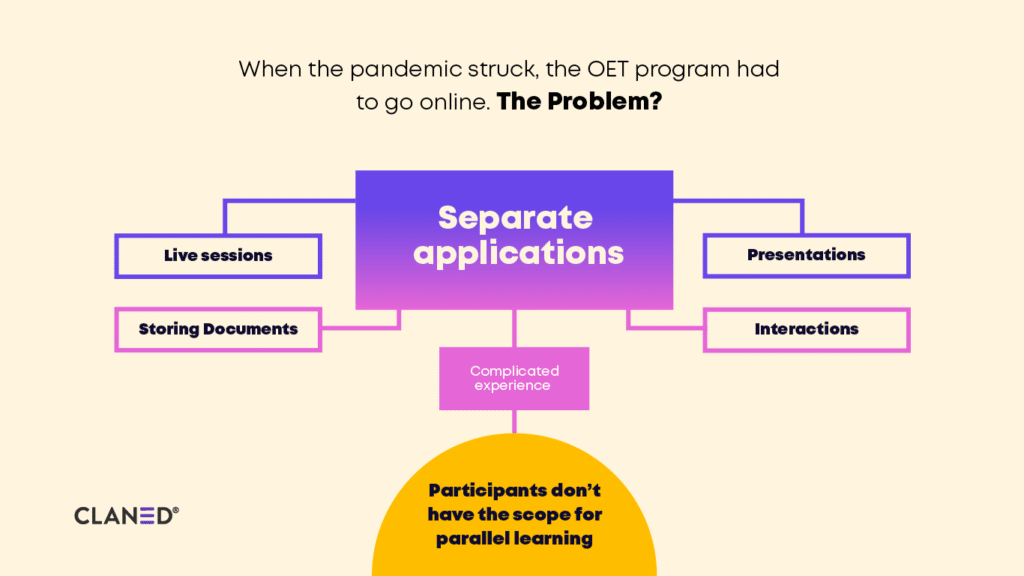
The Executive Training Program was to be one such leadership training program. But then, the pandemic happened.
“When COVID struck, we had to rethink everything”, says Viola. “Initially we postponed for a while, but it soon became clear that that wasn’t going to take us far – we were going to have to adapt.”
But the recently-transformed online training program turned out to be trickier than expected. There were live sessions and interactions on one application, but the documents and presentations had to be stored in another. It was a complicated experience where the participants didn’t have the scope for parallel learning that could happen independently from the live sessions.
And then: enter Claned.
“The OET program is now a whole new experience because all these disparate elements are now combined and available on the same online learning platform”, says Viola.
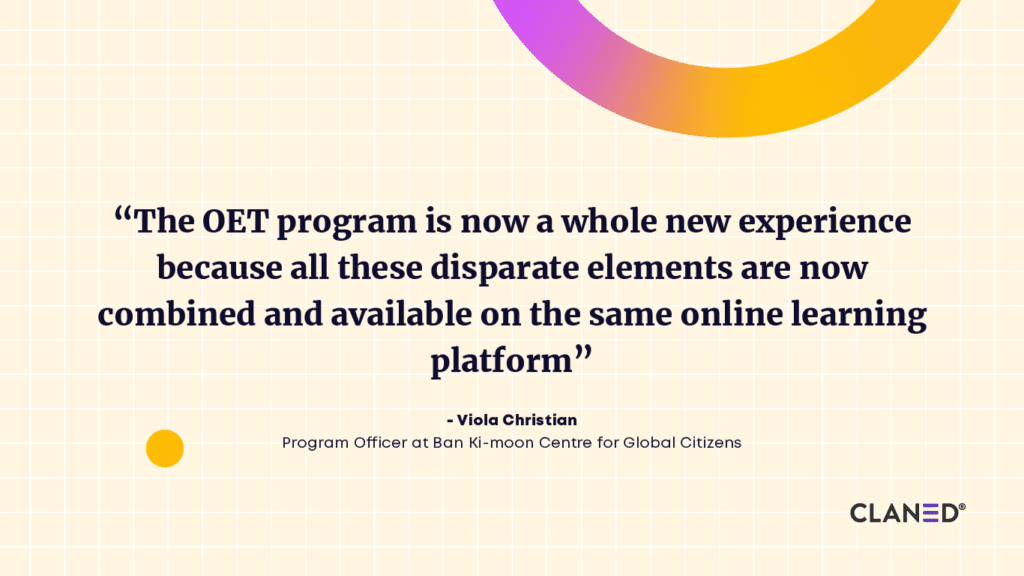
“So far, we’d focused only on skills. But the platform now allows us to approach things differently, where there’s a 50-50 focus on skills as well as knowledge. It helps us to store, distribute and transfer the knowledge part of the course in a more independent manner for the participants to use at their convenience”.
As it turns out, that was just the beginning.
The Road to Empowerment: Goals and Discoveries
With the OET Program, the Claned team got a chance to get in early and dig deep. Which means that the various objectives of the online training program were able to be swiftly met with many of the online learning platform’s features.
Community and Communication
“One of the goals of the program was for the participants to connect, communicate and build a network with other climate adaptation professionals”, says Viola. “We put them in touch with professors who have a long-standing career in the field so that they can find a mentor, a guide on their journey. But we also wanted them to network among themselves – and connect with other incredible women with the same goals”.
This emphasis on networking has its benefits with social learning, too. The more people connect and share during a learning experience, the deeper their learning process becomes. Which is why Claned’s commenting and social learning features proved to be just what the OET program needed.
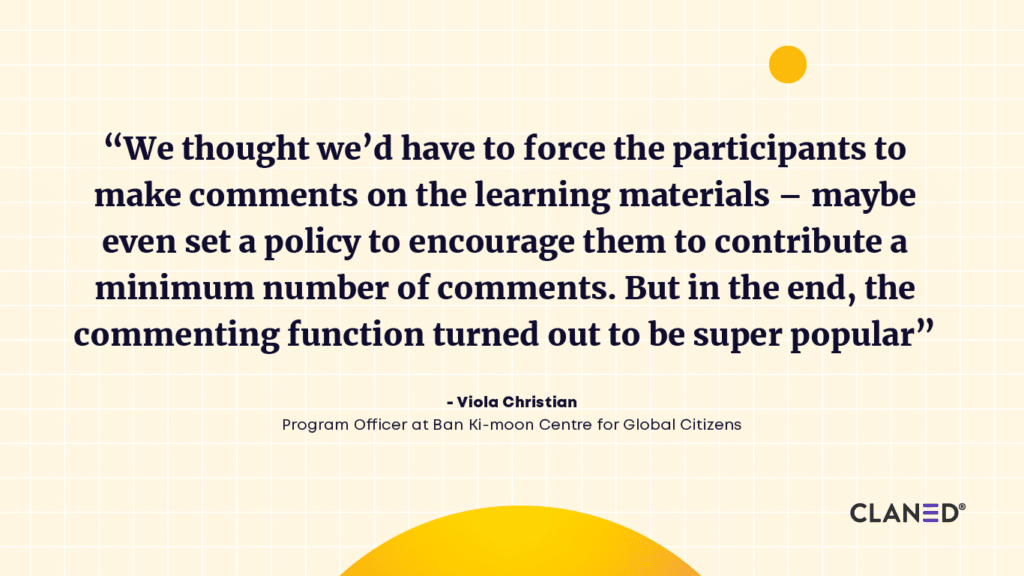
“We thought we’d have to force the participants to make comments on the learning materials – maybe even set a policy to encourage them to contribute a minimum number of comments. But in the end, the commenting function turned out to be super popular”, says Viola.
“The participants loved to share their experiences and takeaways, and by commenting about them with each other, they digested those takeaways. So not only did they get in touch with each other but they also learned from one another.”
Applying Knowledge to the Online Training Program
Another goal essential to the leadership training program was for participants to be able to apply their knowledge productively. The aim of the program, after all, is for the young women to learn to advocate for themselves, participate in negotiations and make a difference as leaders in their communities.
And for that purpose, a typical course-with-quizzes was just not going to be enough.
It meant assignments that required the young participants to brainstorm and think creatively. Like developing a proposal for a climate adaptation micro-project. Or submitting pitches for adaptation projects in the form of a video. None of which would fit in a ‘standard quiz’.
“The team put a lot of effort into making these complicated elements come to life”, says Viola. “There was a slight hesitation because it was possible that the participants wouldn’t feel encouraged enough to complete these assignments that were not the usual straightforward quizzes. They needed creativity and lots of motivation”.
“But we got a lot of encouragement and support from the Claned team. They were confident that as complicated as these assignments might seem, they were driving the learning process along by pushing participants to think outside the box. It encouraged us to think about the learning content in a completely different way.”
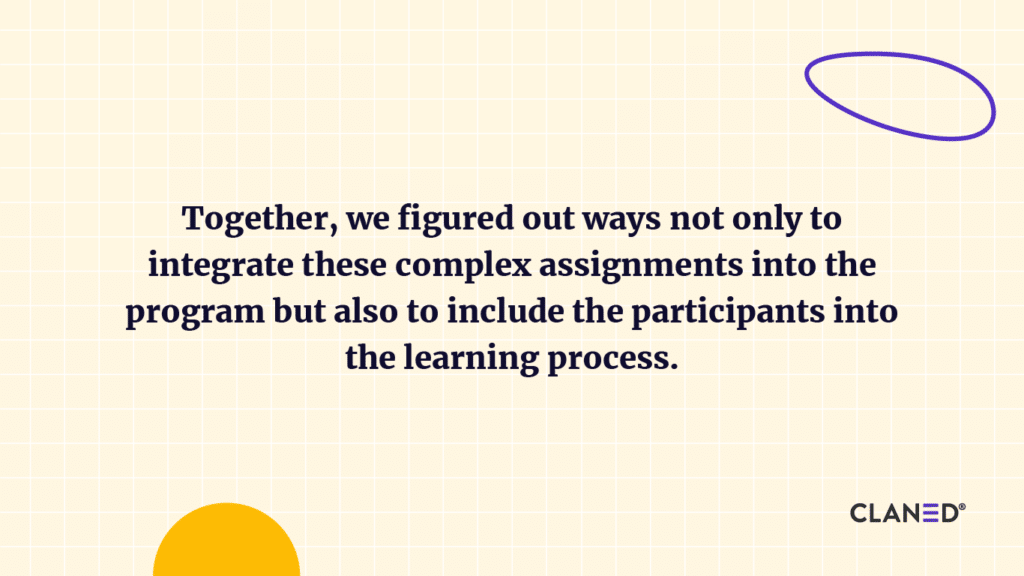
Together, we figured out ways not only to integrate these complex assignments into the program but also to include the participants in the learning process.
As Viola explains: “As opposed to only the admin team adding course material, the participants could now also upload documents onto the platform. The fact that they contributed to the learning experience with learning materials that they were developing themselves — it went a long way”.
Navigating Online Spaces
Another big benefit that came out of the online training program – even without it being a ‘learning objective’ – was that many of the participants got to learn to navigate online spaces.
As Viola says: “Completing a leadership training program online, and in such an immersive way, makes you more familiar with how online spaces work and how things work online. It can equip you with skills you might not have thought about when you started the course. And it is sure to be valuable for the participants in their professions, their future careers and working environments for years to come”.
Making a Difference, One Leader at a Time
The OET program cohort is made up of 30 participants from six different African countries – Ghana, Egypt, Kenya, Nigeria, Zimbabwe, and the Democratic Republic of Congo – and hail from different professional backgrounds. The 20-week online training program is still underway and already, Viola is excited for the potential of all the young women who’ve been a part of the journey.
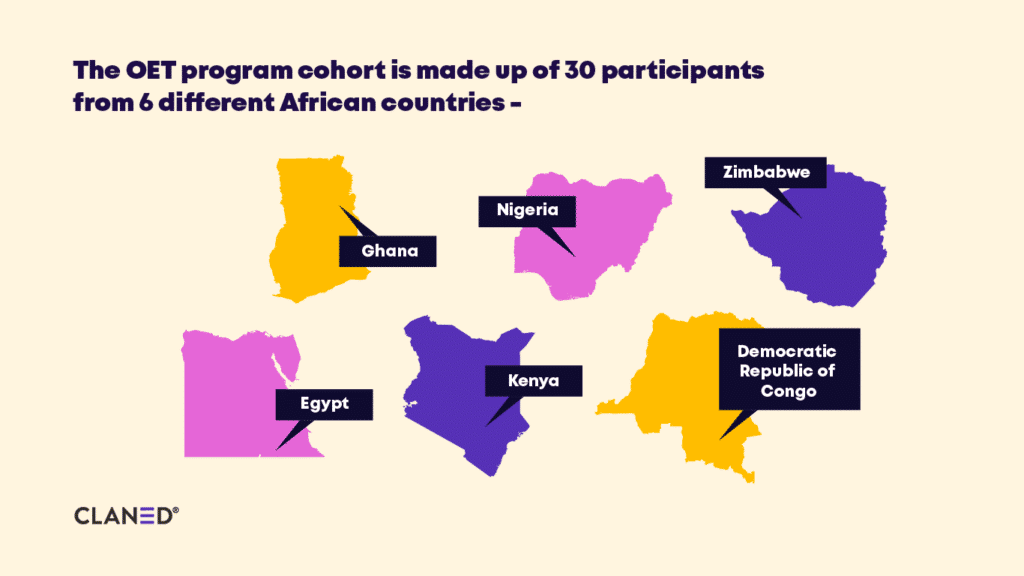
“I think all of the ladies in the program have grown into wonderful leaders. They have demonstrated excellent leadership skills during the training and I’m confident that they will soon be putting those skills to good use”, she says with a wide smile.
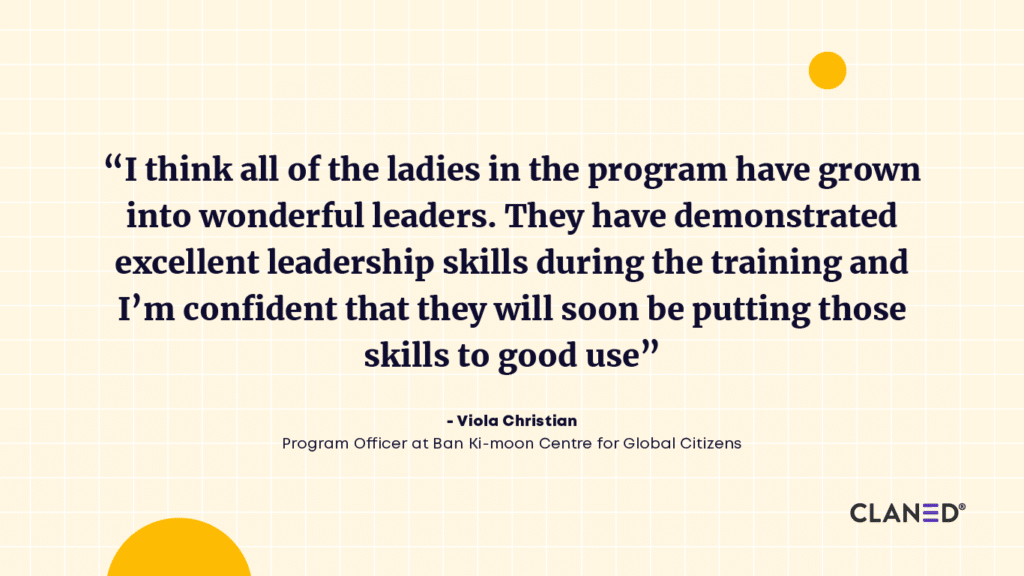
Our team at Claned is elated to have been a part of this important and impactful leadership training program.
The inequalities of the world are leaving half of the world’s population vulnerable to the threats of climate change and disadvantaged when it comes to solution development. So it warms our hearts that the team at Ban Ki-moon Centre for Global Citizens – and the OET’s talented cohort of participants – are hard at work to change the status quo.
We’re just glad we could help.


